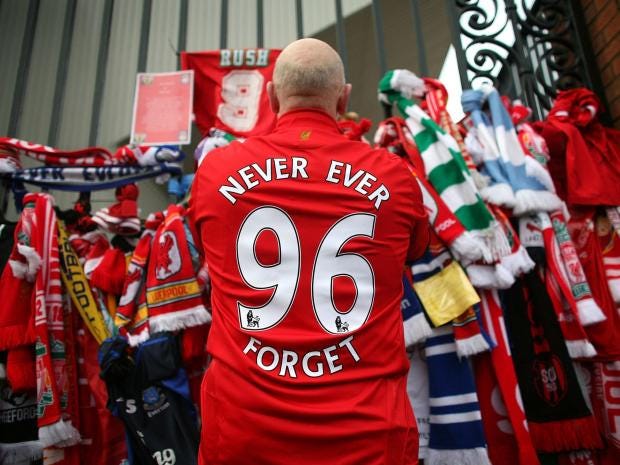
The academic who has done more than any individual to expose the causes and cover up of Hillsborough will state in a documentary on Tuesday night that the full number of people who died in, or as a result of, the disaster will never be known.
Professor Phil Scraton, who headed the Hillsborough Independent Panel and uncovered the process by which police officers statements were amended, told the programme, to be screened on the Welsh language channel S4C: “I can’t tell you what the real number is of people who died as a direct consequence of what they endured at Hillsborough, or after Hillsborough.”
In April last year, a jury in the inquests into the death of 96 Liverpool fans at the Hillsborough stadium decided that they had been unlawfully killed. The jury judged it was police failures at the stadium in April 1989 that led to the deaths, and that the behaviour of the Liverpool fans had not contributed.
But the full psychological toll – possibly exacerbated by the long struggle for transparency – is unknown and never will be established. One supporter, Stephen Whittle, killed himself 22 years after the fatal crush. His father, Frank Whittle, believes that the course of events might have been different had the verdict of unlawful killing been reached years earlier. “He felt guilty at having passed his ticket on," his father said last year.
Tuesday’s documentary, Yr Hunllef Hir (‘The Long Nightmare’), examines the psychological toll through the eyes of producer and presenter Dylan Llewelyn, who was at Hillsborough and 23 years old at the time.
Llewelyn speaks to the former Liverpool players Ian Rush and John Barnes, among others. Rush tells the programme makers that the day of the tragedy, when he started the FA Cup match against Nottingham Forest which was abandoned, has never left him – but it is more for those who carry the emotional consequences of having lost relatives.
Sources: by Ripples Nigeria.






